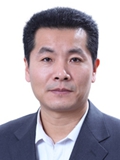 |
|
| Resume: |
Sep 2014-present, Professor, Institute of Zoology, Chinese Academy of Sciences
2014, Research Associate, Johns Hopkins University School of Medicine, USA
2008-2013, Postdoctoral Fellow, University of New Mexico School of Medicine/Louisiana State University Health Sciences Center, USA
2005- 2007, Postdoctoral Fellow, China Agricultural University
2002-2005, Ph.D. student, Institute of Zoology, Chinese Academy of Sciences |
| Research Interests: |
| Traumatic brain injury (TBI) is the leading cause of death and disability worldwide, especially in children and young adults. TBI survivors usually suffer from varying types of disabilities, such as body motor dysfunction, language and communication difficulties, and psychological and social cognitive defects. TBI can lead to delayed-onset neurodegenerative syndromes such as chronic traumatic encephalopathy (CTE). Unfortunately, we know so little about the mechanisms underlying the pathology of CTE, and there are no effective medications currently available for prevention and treatment of CTE. Research in Dr. Teng’s laboratory is focused on neurogenesis and gliogenesis after TBI, the relationship between TBI and later neurodegeneration, generation of functional microglia and neurons from human pluripotent stem cells, and new approaches for prevention and treatment of brain injuries. |
| Selected Publications: |
- Wang YY, Deng YS, Dai SK, Mi TW, Li RY, Liu PP, Liu C, He BD, He XC, Du HZ, Yang HC, Tang Y, Liu CM*, Teng ZQ*. Loss of microglial EED impairs synapse density, learning, and memory. Molecular Psychiatry 2022, doi: 10.1038/s41380-022-01576-w.
- He XC, Wang J, Du HZ, Liu CM*, Teng ZQ*. Intranasal Administration of Agomir-let-7i Improves Cognitive Function in Mice with Traumatic Brain Injury. Cells. 2022, 11(8): 1348.
- Liu XT, Liu CM*, Teng ZQ*. Mouse model of voluntary movement deficits induced by needlestick injuries to the primary motor cortex. Journal of Neuroscience Methods 2022, 365: 109380.
- Dai SK, Liu PP, Du HZ, Liu X, Xu YJ, Liu C, Wang YY, Teng ZQ*, Liu CM*. Histone crotonylation regulates neural stem cell fate decisions by activating bivalent promoters. EMBO Reports 2021, 22 (10): e52023.
- Liu C#, Dai SK#, Shi RX, He XC, Wang YY, He BD, Sun XW, Du HZ, Liu CM*, Teng ZQ*. Transcriptional profiling of microglia in the injured brain reveals distinct molecular features underlying neurodegeneration. Glia 2021, 69 (5): 1292-1306.
- Wang ZM, Liu C, Wang YY, Deng YS, He XC, Du HZ, Liu CM*, Teng ZQ*. SerpinA3N deficiency deteriorates impairments of learning and memory in mice following hippocampal stab injury. Cell Death Discovery 2020, 6 (1): 1-11.
- Tang QY, Zhang SF, Dai SK, Liu C, Wang YY, Du HZ, Teng ZQ*, Liu CM*. UTX regulates human neural differentiation and dendritic morphology by resolving bivalent promoters. Stem Cell Reports 2020, 15 (2): 439-453.
- Mi TW, Sun XW, Wang ZM, Wang YY, He XC, Liu C, Zhang SF, Du HZ, Liu CM*, Teng ZQ*. Loss of MicroRNA-137 Impairs the Homeostasis of Potassium in Neurons via KCC2. Experimental Neurobiology 2020, 29(2): 138-149.
- Liu C#, Dai SK#, Sun Z#, Wang Z, Liu PP, Du HZ, Yu S*, Liu CM*, Teng ZQ*. GA-binding protein GABPβ1 is required for the proliferation of neural stem/progenitor cells. Stem Cell Research 2019, 39: 101501.
- Yan HL#, Sun XW#, Wang ZM#, Liu PP#, Mi TW, Liu C, Wang YY, He XC, Du HZ, Liu CM*, Teng ZQ*. MiR-137 Deficiency Causes Anxiety-Like Behaviors in Mice. Frontiers in Molecular Neuroscience 2019, 12: 260.
- Cheng Y#, Wang ZM#, Tan W#, Wang X#, Li Y, Bai B, Li Y, Zhang SF, Yan HL, Chen ZL, Liu CM, Mi TW, Xia S, Zhou Z, Liu A, Tang GB, Liu C, Dai ZJ, Wang YY, Wang H, Wang X, Kang Y, Lin L, Chen Z, Xie N, Sun Q, Xie W, Peng J, Chen D*, Teng ZQ*, Jin P*. Partial loss of psychiatric risk gene Mir137 in mice causes repetitive behavior and impairs sociability and learning via increased Pde10a. Nature Neuroscience 2018, 21(12): 1689-1703.
- Duan RS#, Tang GB#, Du HZ#, Hu YW, Liu PP, Xu YJ, Zeng YQ, Zhang SF, Wang RY, Teng ZQ, Liu CM*. Polycomb protein family member CBX7 regulates intrinsic axon growth and regeneration. Cell Death and Differentiation 2018, 25(9): 1598-1611.
- Liu PP, Xu YJ, Teng ZQ, Liu CM*. Polycomb Repressive Complex 2: Emerging Roles in the Central Nervous System. Neuroscientist 2018, 24(3): 208-220.
- Liu PP, Tang GB, Xu YJ, Zeng YQ, Zhang SF, Du HZ, Teng ZQ*, Liu CM*. MiR-203 Interplays with Polycomb Repressive Complexes to Regulate the Proliferation of Neural Stem/Progenitor Cells. Stem Cell Reports 2017, 9(1): 190-202.
- Chen R#, Zhang J#, Fan N#, Teng ZQ#, Wu Y#, Yang H, Tang YP, Sun H, Song Y, Chen C*. Δ9-THC-caused synaptic and memory impairments are mediated through COX-2 signaling. Cell 2013, 155(5): 1154-1165.
- Liu C#, Teng ZQ#, Santistevan NJ, Szulwach KE, Guo W, Jin P, Zhao X*. Epigenetic regulation of miR-184 by MBD1 governs neural stem cell proliferation and differentiation. Cell Stem Cell 2010, 6(5): 433-44.
|
|
|
|